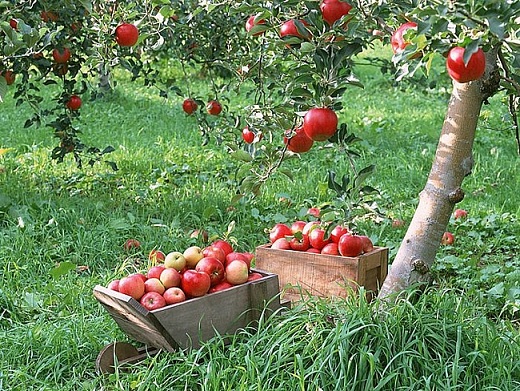The «Initiative of Roza Otunbayeva» IPF in cooperation with the UN Food and Agriculture Organization (FAO) will plant schoolyard gardens
February 18, 2016, 06:00
The program will begin in pilot schools in Chui Oblast, where apple, plum, and other fruit tree seeds that are best adapted to the climate of the Chui Valley will be planted in early spring. As a result, in a couple of years, children will be able to get useful vitamins during school lunches, replacing tea with fruit juices gathered from their very own school garden. Additionally, it is anticipated that it will encourage non-pilot schools to implement hot lunches.
The Roza Otunbayeva International Public Foundation also encourages and supports the establishment of school gardens as a learning platform to promote a healthy and balanced diet, the formation of healthy patterns of living, and the exploration of nature.
Alarming research data show that one-in-five children in Kyrgyzstan suffer from an unbalanced diet and do not receive the necessary vitamins and micronutrients for their growing bodies. As a result, 14 percent of children in the country have underdeveloped growth, and 22 percent of children die before five years due to a shortage of certain micronutrients. The prevalence of iron deficiency anemia is extremely high in the country; nearly half of all children in the country suffer from iron deficiency.
Balanced school meal programs that the Food and Agriculture Organization (FAO) is implementing around the world are helping to solve the problems of child nutrition. Schools are an ideal place for the development of basic habits in diet, nutrition and maintaining a healthy lifestyle. In many countries, schools are the only place where children can acquire these important life skills. In October 2015 the Government of Kyrgyzstan approved the National Strategy for Food Security and Nutrition, which has initiated the development and is led by the FAO.
Schools not only work with children in an age when they are forming the habit of good nutrition and healthy lifestyles; schools also interact with families and teachers and can serve as a channel to engage in their activities for the general public.
Promoting diligent nutrition through schools has benefits that go beyond the classroom and the school yard, and helps to improve the well-being of families and the population in regard to a healthy lifestyle and proper nutrition.
Complementary educational activities, including practical school lessons with students receiving their own experience and skills enabling them to participate directly in the assimilation of information on food, diet, and health, is an integral part of effective nutrition education on the school campus.
School gardens are laboratories for teaching about agriculture, nutrition and economics. Within the project, all schools will be provided with tools, fertilizers, and the staff will be trained in the competent and effective care of the gardens. In addition, experienced agronomists will monitor the condition of the gardens.